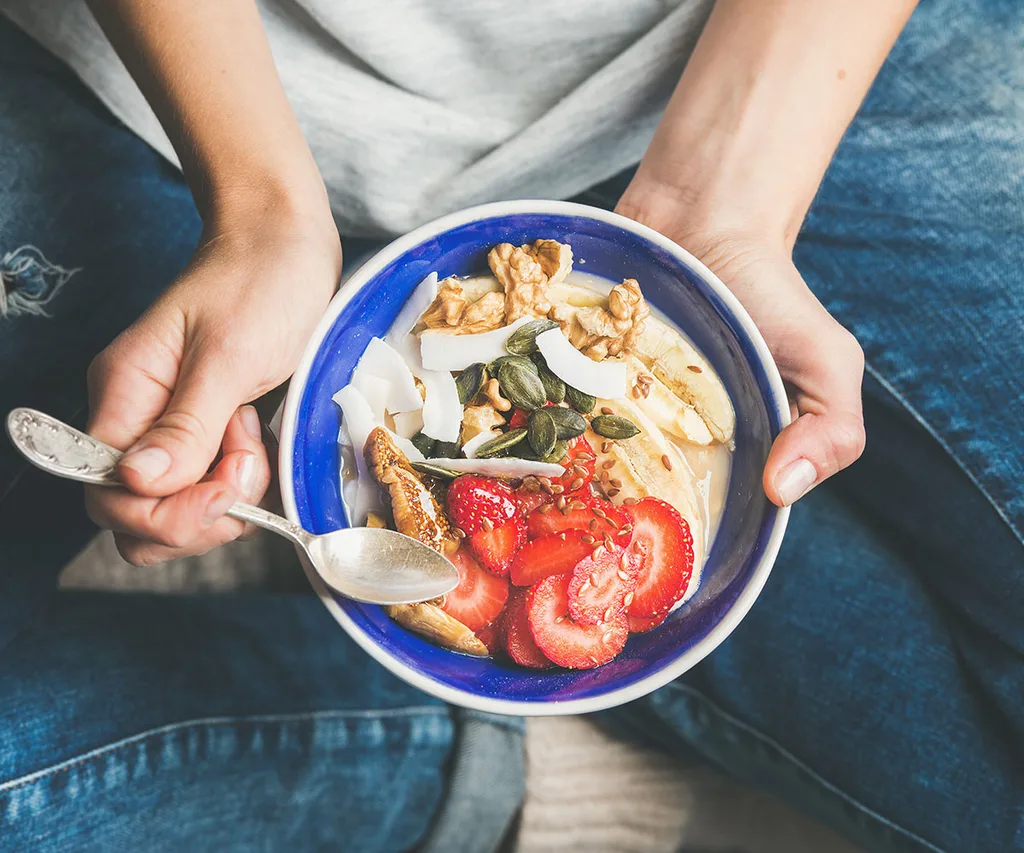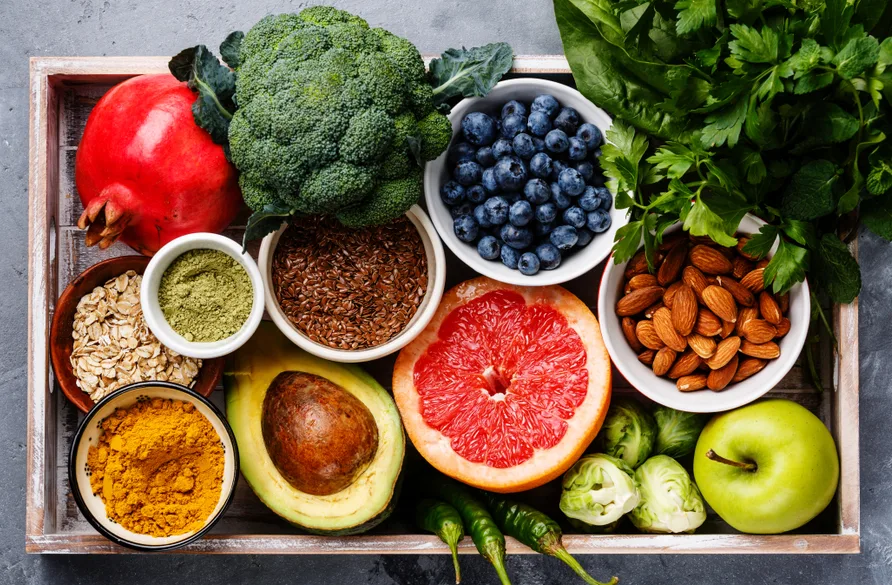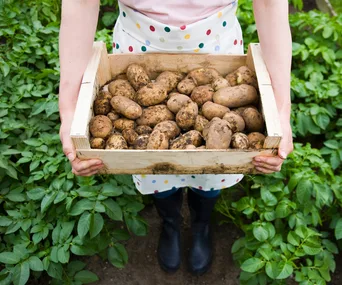Could eating more fruit, vegetables, fish and whole grains help lower your risk of being diagnosed with depression? And will people with depression one day be prescribed a healthy eating plan, along with conventional treatment, to help manage their illness? Experts in the field of nutritional psychiatry believe so.
The International Society for Nutritional Psychiatry Research (ISNPR) is investigating ‘nutritional approaches to the prevention and treatment of mental disorders.’
So researchers are looking at how eating some foods, and reducing or avoiding others, may help prevent or treat mental health issues – from depression and schizophrenia to attention-deficit hyperactivity disorder and post-traumatic stress disorder.
“When I came in to psychiatry research, I was surprised that there was no scientific research looking at diet and how it related to mental health,” says Professor Felice Jacka, President of the ISNPR and head of the Food & Mood Centre at Deakin University in Melbourne. She has pioneered research that examines how diets and lifestyle behaviours are linked to our risk of mental health problems.
“After all, nutrition is the fuel that drives our body and each body process. You wouldn’t put sandy, dirty petrol in a Porsche and expect to get performance and longevity from it. It’s the same with the body,” adds Professor Jacka.
“Mental disorders are the leading burden of disability and the prevalence is increasing. We need new insights to develop new preventative strategies and new treatments for mental disorders.”

Professor Jacka, and a growing body of evidence from around the world, say what we eat each day may be one of those much-needed new strategies in the fight against mental illness.
In 2017, Professor Jacka led the world-first SMILES Trial that showed diet can help manage depression.
For 12-weeks, adults diagnosed with major depression received social support, or they received support from a clinical dietitian.
The group supported by the dietitian followed a Mediterranean-style diet based on vegetables, fruits, wholegrains, legumes, fish, lean red meats, olive oil and nuts.
They ate limited amounts of sweets, refined cereals, fried and fatty foods, fast food, processed meats and sugar-sweetened drinks.
At the end of the trial, a third of people following the healthy eating plan saw their depression improve enough to be classed as being in remission.
This compared to only eight percent of the people who received social support.
“These results were not explained by changes in physical activity or bodyweight but were closely related to the extent of dietary change. Those who adhered more closely to the dietary program experienced the greatest benefit to their depression symptoms,” says Professor Jacka.
Elsewhere around the world, researchers are also showing that what we eat or drink has an impact on mental wellbeing.
A Japanese study found people who drank more than four cups of green tea a day had a 51 per cent lower chance of developing symptoms of depression than people who drank less than one cup of green tea a day.
A healthy diet that boosts good cholesterol also seems to be beneficial for women’s brains.
University of Melbourne research found women who ate well and had healthy cholesterol levels suffered less damage to the white matter in their brain as they got older. White matter is part of the brain’s communication system and researchers believe healthy white matter may help reduce the risk of dementia.
Turmeric may also one day become part of the nutritional armoury and help prevent mental illness or alleviate symptoms.
The ancient Indian herb has an antioxidant and anti-inflammatory effect, and, for centuries, it has been used to relieve pain.
New studies are testing the effects of turmeric on people with Alzheimer’s disease as rates of Alzheimer’s disease in elderly people are 4.4 times lower in India than in the US.
Researchers at the University of New South Wales are investigating the potential beneficial effects of pomegranate juice to help protect the brain from dementia.
A study by the UNSW’s Centre for Healthy Brain Ageing found the high concentrations of polyphenols in pomegranates helped protect the brains of mice from age-related decline and from the build-up of amyloid-beta protein.
This protein is the main component of the brain plaques found in patients with dementia. Those tests now need to be translated to people to see if pomegranates will have the same protective effect.

Turmeric supports joint health, our cardiovascular function and even aids the health of our digestive system. (Source: Getty)
Eating the wrong foods can affect our brain and mental health
Just as healthy food can be potentially protective of brain health and mental disorders, a typical Western diet high in fats and sugars may increase our risk of mental ill health, says Professor Jacka.
Her studies show that the area of the brain called the hippocampus, which is mostly responsible for learning and memory, is particularly negatively affected by a junk food diet.
“Sugars and saturated fat are seen to have a very negative impact on the hippocampus whereas berries and fish oils have a positive impact on hippocampal functioning,” she explains.
“We looked at the quality of people’s diets and the size of their hippocampus and the people with healthier diets had large hippocampal volumes, whereas people with unhealthy diets had smaller hippocampal volumes. The quality of our diet is clearly linked to the size of our hippocampus and we believe this has a bearing on our brain power and our ability to learn and to remember right across our lifespan.”

A central link between our diet and our brain is our gut, and there is increasing recognition of how gut health affects our brain, mood and mental health.
“The gut is likely a central mediating pathway,” says Professor Jacka.
“And the most important factor that affects the gut is diet. Diet and dietary change can affect the health of the gut within a very short time – within days and possibly hours. So you can affect important and beneficial changes to your gut within a short time-frame by changing your diet, and those changes, based on the evidence so far, would be expected to flow to benefit our physical, mental and brain health.
“We are now at a point where we have many studies from different countries, different cultures and across different age groups showing a link between the quality of the diet we eat each day and our risk for, in particular, depressive disorders,” says Professor Jacka.
“Many risk factors for mental disorders are not readily amenable to change – like family history, stress, early life trauma and socio-economic disadvantage. These things are known risk factors, but they are difficult to change so identifying factors that can be changed are important for prevention. And what we eat is one thing that we can change and control.”
Six feel-good foods to try

Omega 3s
DHA is an omega 3 fatty acid and it’s the most abundant fatty acid in the brain. It helps support healthy brain ageing. Fish and fish oil supplements are good sources.
Vegans and vegetarians won’t, of course, be able to take these supplements, so it’s important to meet your omega-3 needs through diet. Plant-based foods that are good sources include chia seeds, Brussels sprouts, algal oil, hemp seeds, walnuts, flaxseeds and perilla oil.
Folate
Japanese researchers say people with very low folate levels may have as much as a 67 per cent increased risk of depression. It can be found in fortified cereals or supplements.
Zinc
A Japanese study found adding zinc to people’s diet helped decrease their levels of anger and depression. Find it in red meat, fortified cereals, nuts and seafood
Magnesium
Low magnesium has been linked to increased risk of depression by Australian and US research. Rich sources are spinach, tofu, bananas, pumpkin, almonds and Brazil nuts.
Quercetin
Found in lettuce, capsicums, apples, onions, berries, broccoli, tomatoes and guava. May boost cognition, learning and memory.
EGCG
Epigallocatechin-3-gallate (EGCG) is one of the key ingredients in green tea. It helps grow neuron cells in the hippocampus.

For more great reads check out your latest issue of Good Health & Wellbeing, on sale now.
.jpg?resize=720%2C405)



